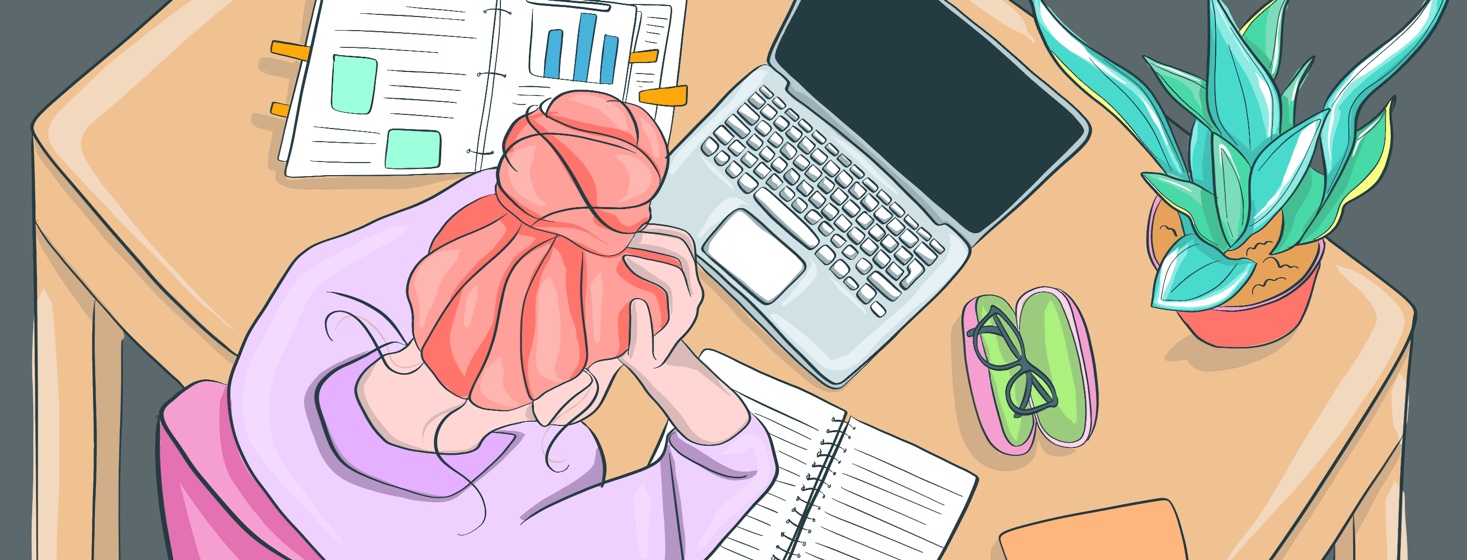The Impact of Depression on My Career
I'm a licensed clinical social worker practicing in the New York City area for almost 24 years. I also have lived experience with severe mental illness. Social work is my second career.
My career was impacted by mental illness
My mental illnesses have impacted almost every job I've had. Some I've lost due to mental illness, and at some, I've felt forced to resign. In my late 20s, I was diagnosed with anorexia, major depressive disorder, severe, recurrent with psychotic features, and borderline personality disorder (BPD).
Early career path
My first career out of college was in advertising. I started as a secretary in an advertising agency in Manhattan and after a year got promoted to consumer promotion assistant.
I was a late bloomer with dating and relationships, and a friend of mine suggested I see a therapist for my "relationship" issues.
Starting therapy for depression
Once in therapy, digging deep into old wounds triggered a depression. An elderly psychiatrist prescribed medication, but he gave me a stimulant instead of an antidepressant.The stimulant decimated my appetite, and I developed anorexia alongside the depression.
My weight plummeted to a dangerous level, and I was hospitalized for 6 months. I stopped asking what if a long time ago.
Being let go from a job
By this time, I'd left the advertising agency and was working for one of the largest packaged goods companies in the world. They held my job, but a year later I'd lost the weight again, was depressed, and found myself back in the hospital. This time the company let me go. (This was before the Americans with Disabilities Act.)
Hospitalized and a new diagnosis
I was despondent.I believed my life was over. I'd worked hard over the previous 8 years to claw my way up from a secretary to the position of consumer promotion development manager at this prestigious company.
I attempted suicide and when I was hospitalized on the psych unit, the treatment team diagnosed me with borderline personality disorder. I ended up in a long-term unit specifically for treating people with BPD. This unit used DBT or dialectical behavior therapy. While on the unit, I saw a psychiatrist 3 times a week for therapy.
Seeds planted for a career in mental health
The seeds of curiosity were planted during my initial experience with therapy, but they didn't take root until I was on the long-term unit. I thought about the process of therapy and why and how it worked. I wondered, How does the therapist know what to say? How does she know when to say it? How does she know when to stay silent?
Educating myself on mental health
I decided to get my master's degree in social work. I did extremely well in school, with my perfectionistic tendencies fueling a 4.0 GPA, but also causing me to relapse into my anorexia. I managed to get through the program without needing to go back to the hospital.
Challenges of working during relapses
I graduated in 2000 and obtained my first job as a social worker. My mother passed away 2 years later of pancreatic cancer, 3 months after she was diagnosed. She had been my best friend. I took a week off from work and when I returned, I was grieving and depressed.
I relapsed back into my anorexia because my weight felt like the only thing in my life I could control. I took a month off work to be admitted to an eating disorder unit.
Hospitalization and a reduced position at work
In 2005, still at the same job, I plummeted into a deep depression and became suicidal. I was hospitalized once again. When I returned to work after a month, I found my caseload had been transferred to the other clinicians and my position had been reduced to a trainer of the new electronic medical record.
Humiliated, I quit. The depression persisted and I ended up taking 2 years off. In those 2 years, I was psychiatrically hospitalized 6 times and received a course of electroconvulsive therapy (ECT).
A new job interrupted by depression
With a directive from my then-psychiatrist, I returned to work at an outpatient clinic in 2007. I did well for several years with this new psychiatrist.
In 2013, my father passed away. The depression that followed was fueled by rage and resentment. I never heard the words "you are good enough," leave his lips and now I never would. The rage consumed me, and I became severely depressed. Eleven months after his death, in March 2014, I again attempted suicide and was hospitalized.
When I returned to work, it was part-time, and my clinical duties had been curtailed. I swallowed my pride because I couldn't afford to quit.
In and out of work
I returned to work full-time 6 months later, but the damage was done. I was permanently relieved of my clinical duties. I started looking for another job.
By that time, in early 2016, I'd started a year-long termination process in my therapy. I no longer met the criteria for BPD. My depression was under control as was my anorexia.
I take pride in my progress
March 2024 was 10 years since my last suicide attempt and my last psychiatric hospitalization. This new job will be my third. That's not to say I haven't had periods of depression and even a relapse of my anorexia. But nothing that has required a hospitalization or interfered with my career.
Sometimes, it's hard for me to acknowledge progress – this achievement I proudly acknowledge.
This or That
It's hard to acknowledge our accomplishments. Choose the affirmation you need today.
